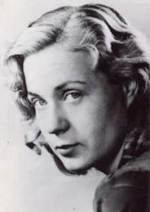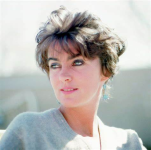?? Henrik Pontopiddan,
Lucky Per 




Earlier this year, I was very surprised that Lion Feuchtwanger and his
Jew Suss are as little-known as they are. Now, it’s my turn to be shocked that Henrik Pontopiddan and
Lucky Per are so little recognized. Feuchtwanger didn’t win a Nobel Prize but Pontopiddan did. Posterity can be cruel. When I read Johannes Jensen’s
Fall of the King last year (another work I gave five stars), I noted that “in 1999, two leading Danish newspapers, independently of each other, both named this the best Danish book of the 20th century! Now, having read it, I am completely baffled:
why on earth isn’t Jensen better known?”
Lucky Per came in number two in those ratings. My reaction is the same.
My thoughts? Read this book. The story is the religious awakening, though not entirely written in those terms, of a young Danish man in the last quarter of the 19th century. Don’t let that put you off. Pontopiddan routinely refers to religion but cleverly underplays it, rarely emphasizing the subject (although it appears often enough) until the end when he does so in a
tour de force that I found terribly impressive. It is noteworthy that his depiction of Jews is extraordinarily well-done; that’s particularly important because one of the most important characters in the book is Jewish. His ability to create memorable human characters is admirable: there are few minor characters in the book who are not indelible. I read the Everyman’s Library translation by Naomi Lebowitz (there is another recent one in English as well, surprisingly enough); it seemed excellent to me. Both the introduction (by Danish author Garth Hallberg and available in abbreviated form online
here) and the afterword by the translator are helpful in situating the work in the author’s and the literary times. Indeed, Lebowitz makes an essential observation:
Lucky Per owes a great debt to the Grimms’ tale,
Hans im Gluck (“Hans in Luck”) the story of a young man who is paid his wages in gold and trades down—first for a horse, then a cow, and so on—until he is left with nothing. But the moral of the tale is that only now is Hans truly happy. After some 550 pages, I was impressed but somehow not quite convinced. Then I read the last chapter. Pontopiddan brings everything together brilliantly. I simply had to sit still and digest how he had done it.
?? Ivan Olbracht,
Nikola the Outlaw 

I first read Olbracht’s work a number of years ago when the Central European Press began publishing a series of Central/Eastern European authors whose work Timothy Garton Ash (a major scholar of that part of the world in the 1990s) considered essential. As I recall, the first piece I read was
The Sorrowful Eyes of Hannah Karajich. I was very impressed. Olbracht, born in Bohemia in 1882, specialized in writing about the lives of people in Ruthenia, especially Jews (he was not Jewish). Ruthenia lies by the Carpathian Mountains in what is now Western Ukraine but has historically been Slovak, Romanian, Hungarian, Polish—a mishmash of many things. It’s a gorgeous place (yes, I’ve been), still largely untouched by the 21st (or even the 20th) century.
Nikola the Outlaw is supposedly his masterwork, a tale of a Robin Hood-like character though much of what is attractive about the book is Olbracht’s depiction of rural life in this region. He is especially acute on relations between the peasantry and the Jews, and his ability to draw believable characters is wonderful. All that said, I was ultimately disappointed in this work. It dragged too often, more than a few characters seemed unexpectedly stereotyped, and Nikola himself was less than entirely sympathetic. The book just didn’t engage me. Still, I would recommend Olbracht should you be interested in this time and place. Just start elsewhere.
??/?? Bessie Head,
The Collector of Treasures 



I’m embarrassed to have taken so long to read her. I have long known her enormous reputation but have somehow unaccountably never read her work. It won’t be long until I pick up another: she richly deserves her reputation. This collection of stories takes place in Botswana, the country that Head (born in South Africa) used most often for her settings. Head’s own biography is fascinating; I urge you to investigate it. But these stories: it is tempting to say that they all deal with the position of women in society, with the abuses and the injustices they suffer. And there is much of that. But the stories are much richer, more rounded, and fuller. They relate in simple straightforward prose the lives of rural women (and men) as they live under the cumulative oppressions of patriarchy, poverty and colonialism. Her protagonists can seem surprisingly meek and yet underestimating their power is always foolish; their belief in themselves is little short of awe-inspiring. These stories address issues prompted by colonialism, by traditional and Christian spirituality, and deal with the tension inevitable between group and individual identity. She is a powerful writer and most of her protagonists are nothing less than a primal force.
?? Javier Cercas,
Soldiers of Salamis 


Cercas uses metafiction—a technique in which the author focuses as much on a work’s own structure (regularly intruding the remind the reader that he is reading fiction) as on its story—as a way of analyzing the relationship between literature and reality or between life and art. The ostensible subject of the book is an investigation into an incident that took place during the Spanish Civil War: a founder and key thinker in the Falangist (fascist) party miraculously escapes execution only to be found by a Republican soldier who unaccountably spares his life. The Fascist becomes a national hero under Franco; the soldier is forgotten. Cercas says that the character in the novel, also named Javier Cercas, has one goal: to discover what “really” happened. The work is divided into three parts: the first part is the story of his research; the second part is the story resulting from the first part. Had the book ended here, it would have been mildly interesting but, ultimately, tedious. Too much detail, far more than you are likely to want to know about this Falangist hero. Ah…but the third part:
this is the key. This is where story and history intertwine, where memory and forgetting become an inescapable part of the meaning of life and death. This last part is riveting and beautifully told. The book is even more complex than I suggest and worthy of a graduate school seminar to unpack its meanings. Whether you’ll have the patience for it only you can say. But if you make it to the end, I think you’ll agree it was time well spent.


